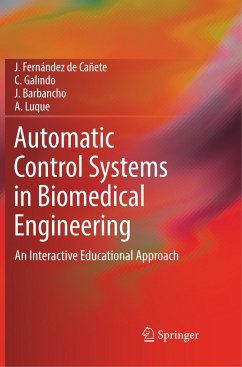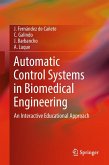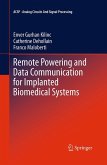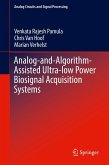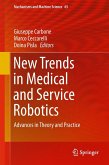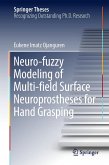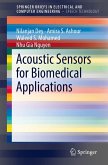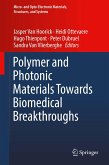This book presents the fundamental principles and challenges encountered in the control of biomedical systems, providing practical solutions and suggesting alternatives. The perspective of the text is based on the system behaviour in the time domain both linear and non-linear, continuous and discrete, helping the reader to be able to interpret the physical significance of mathematical results during control system analysis and design focusing on biomedical engineering applications.
Interactive learning is promoted, endowing students with the ability to change parameters and conditions during the simulation and see the effects of these changes, by using interactive MATLAB and SIMULINK software tools, also presenting realistic problems in order to analyse, design and develop automatic control systems.
The text is also complemented with MATLAB and SIMULINK exercise files solved to aid students to focus on the fundamental concepts treated throughout the book, followinga new pedagogical approach distinct from the classical one whereby fundamental control concepts are introduced together with adequate software tools in order to gain insight on the biomedical engineering control problems.
The book is suitable for second or third-year undergraduate students who will find the illustrative examples particularly useful to their studies of control system design and implementation. Lecturers in the control field will find the computer aided design approach as an alternative to teaching the fundamental concepts of feedback analogic and digital control.
Interactive learning is promoted, endowing students with the ability to change parameters and conditions during the simulation and see the effects of these changes, by using interactive MATLAB and SIMULINK software tools, also presenting realistic problems in order to analyse, design and develop automatic control systems.
The text is also complemented with MATLAB and SIMULINK exercise files solved to aid students to focus on the fundamental concepts treated throughout the book, followinga new pedagogical approach distinct from the classical one whereby fundamental control concepts are introduced together with adequate software tools in order to gain insight on the biomedical engineering control problems.
The book is suitable for second or third-year undergraduate students who will find the illustrative examples particularly useful to their studies of control system design and implementation. Lecturers in the control field will find the computer aided design approach as an alternative to teaching the fundamental concepts of feedback analogic and digital control.

